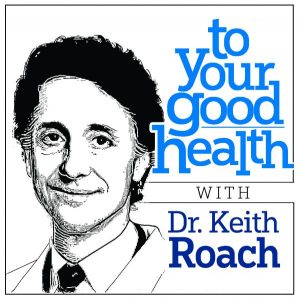GOOD HEALTH: Supplements taken at lower doses won’t adversely affect health
By Dr. Keith Roach — January 2, 2023 DEAR DR. ROACH: I am a healthy 46-year-old woman who exercises daily for health, strength, and stress relief. I also want to stay relatively lean. In order to maintain muscle mass and control fat, I’ve been advised consistently (by a Ph.D. nutritionist and a couple of “nutrition coach” trainers) to take 1 g of protein per pound of body weight daily. They also have advised leucine and L-carnitine supplements. I usually have 1 scoop of whey protein (about 25 g) and 1/2 to 1 scoop of plant protein daily. I take about 1 g of leucine per day. My L-carnitine supplement is 500 mg.
DEAR DR. ROACH: I am a healthy 46-year-old woman who exercises daily for health, strength, and stress relief. I also want to stay relatively lean. In order to maintain muscle mass and control fat, I’ve been advised consistently (by a Ph.D. nutritionist and a couple of “nutrition coach” trainers) to take 1 g of protein per pound of body weight daily. They also have advised leucine and L-carnitine supplements. I usually have 1 scoop of whey protein (about 25 g) and 1/2 to 1 scoop of plant protein daily. I take about 1 g of leucine per day. My L-carnitine supplement is 500 mg.
My question is, are any, or all, of these supplements safe for long-term use and are there any concerns or possible side effects I should be concerned about? I have read plenty that recommend them, but the goals for taking them are usually short-term.
Other than having extra protein, my diet is slanted away from sugar and toward whole foods and lots of vegetables. I work out seven days a week, including four to five “hard” days of cardio and weightlifting and two to three “light” days of easy cardio. I also stretch and get at least seven hours of sleep daily.
I want to have health, mobility and strength as long as possible and want to make sure I’m not inadvertently hurting the long goal by using supplements now. — M.
ANSWER: Understanding advice on nutrition and supplements for exercise is difficult because the evidence is often poor-quality and conflicting, probably due to the fact that what is effective for one person may be ineffective for another.
Carnitine is found naturally in muscle and is important in moving fat into the mitochondria, where it can be used as energy. Carnitine supplementation has been shown to improve exercise tolerance and increase use of body fat stores for energy. It can also improve blood and oxygen flow to the muscle if taken with large amounts of carbohydrates (the study authors used 4 ounces of simple sugar in water — more than it sounds like you take in, and perhaps more than optimal for good health). Carnitine is safe at the dose you are taking: At doses six times that high, it may cause nausea, vomiting and diarrhea.
Leucine, like valine and isoleucine, is a branched-chain amino acid. They are “essential,” meaning they cannot be synthesized in the body. They are found in red meat and dairy products. They are also found in legumes, nuts, grains and seeds, but a person on a strict vegan diet needs to be careful to mix these appropriately, to get all the essential amino acids they need.
Some claim that branched-chain amino acids reduce fatigue, improve endurance, provide fuel for working muscle and reduce muscle protein breakdown and soreness from exercise, but there is no high-quality evidence that they are effective. A chicken breast contains the equivalent of seven average branched-chain amino acid supplement tablets. Leucine in the dose you are taking should have no adverse effects.
The standard guideline recommends that individuals consume 150 g of protein-rich foods daily, for a 2,000 calorie diet. You may be burning more than 2,000 calories with exercise, but you are certainly getting all the protein you need. Excess animal protein may worsen kidney function, but plant protein does not seem to cause that issue.
In my opinion, your diet and exercise, which are remarkable, are much more likely to achieve your goals than your supplements, but I do not think the supplements are harming you.
Dr. Roach regrets that he is unable to answer individual questions, but will incorporate them in the column whenever possible. Readers may email questions to ToYourGoodHealth@med.cornell.edu.
© 2023 North America Synd., Inc.
All Rights Reserved
GOOD HEALTH: Radiofrequency ablation considerably lessens back pain







